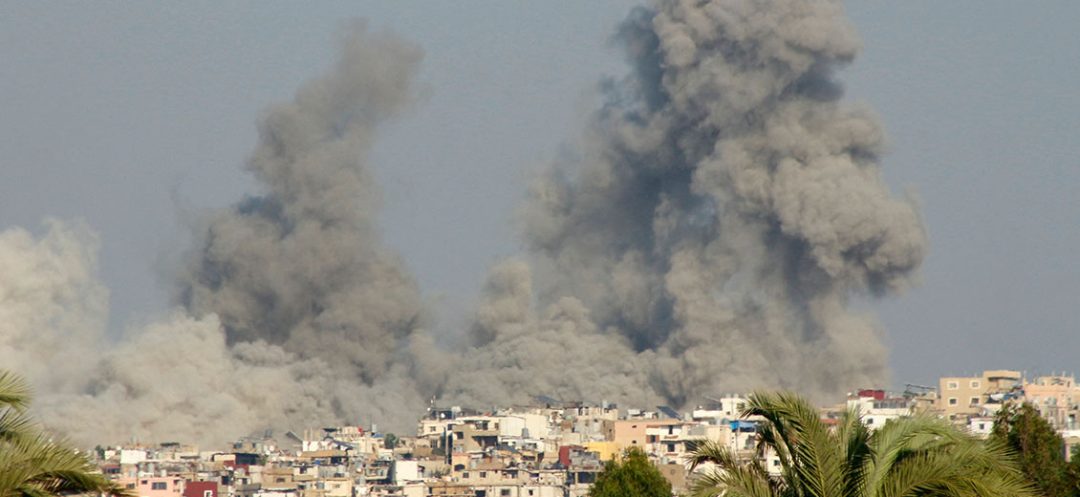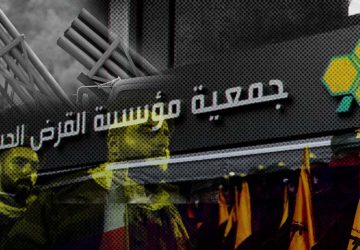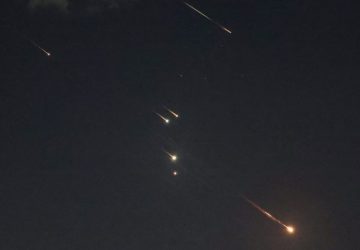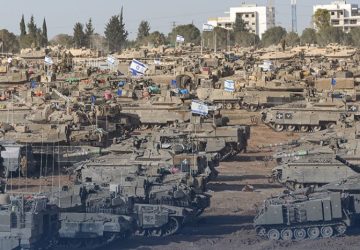Listen to the article
Lebanon is in a state of war, and this reality should be acknowledged if we are to cope with its manifold consequences.
The first question to be raised is with whom, because it’s the starting point before engaging the issues that attach to it: the war is between the State of Israel and Hezbollah and not between Israel and Lebanon. The Lebanese are dealing with a war they did not choose; it was unilaterally decided by Hezbollah without any regard to constitutional procedures. Therefore, the actual deliberations at the United Nations are legally flawed since they are proceeding on the very basis of the conflation between Hezbollah and the State of Lebanon.
The actual government is a de facto government imposed by Hezbollah and acting under its instructions in the absence of an elected president and a legal executive power. The rump parliament is a grotesque caricature of democratic governance and a pliable instrument manipulated by an autocrat who has been in place for 32 years. Parliamentary elections are democratic parodies rigged by the well-entrenched oligarchs, and the elected representatives are mere puppets aligning with the diktats of Hezbollah’s power coalition. The government is an institutional sham designed and put in place to confer a pseudo-legitimacy and conceal the underlying power politics.
The negotiation process is inherently flawed and lacks legitimacy. The actual Speaker of the Parliament and the Caretaker Prime Minister are ancillaries to the true power broker and its masterminding patrons in Teheran. They do not represent by any means the Lebanese people, and the whole institutional paraphernalia is the metonymy of a democratic fraud. The Lebanese delegation at the United Nations represents Hezbollah, negotiates on its behalf, and does not convey any Lebanese consensus. Therefore, the whole process is a tool in Iran’s diplomatic maneuvering.
This conflict dynamic was initially propelled by Iran to promote its current political agenda, safeguard its nuclear military program, consolidate its hold over the newly crafted imperial outposts, and sustain the momentum of political subversion throughout the region epitomized under the motto of “unified battlefields.” Entrusting the negotiation process to the political entrepreneurs who are the architects of this destructive dynamic is a strategic mistake, especially if any truce serves to rehabilitate Hezbollah at the expense of Lebanese sovereignty, for the sake of the subversive agenda led by the Iranian revolutionary guard.
The massacres of October 7, 2023, were quite explicit about the interlocking destabilization dynamics and their incidences throughout the region. No deconfliction strategy is likely to succeed if it fails to establish the nexus between the topical conflicts and the destabilization strategy devised by Iran. When Qassem Suleimani proceeded with his “unified battlefields” operational scheme, he met few obstacles and was adept at circumventing obstacles and manipulating the deeply fractured and segmented tribal societies. After securing their controls over the Near East (Iraq, Syria, Lebanon, Gaza, and the West Bank, etc.), the Iranians had to confront the only hurdle to their bolting subversion dynamic, Israel. Therefore, the interlocking dynamics between Hezbollah and Hamas are far from fortuitous and account largely for the ongoing political and military developments.
The cutting of the Gordian knots undertaken by Israel was inevitable and salvational to break the cycle of violence and rehabilitate the chances of negotiating a conflict resolution throughout the region. Defeating Hamas and Hezbollah is a prelude to political normalization and to the resumption of negotiations over the pending conflicts in Lebanon, Syria, Iraq, and the Palestinian territories. Military defeats will reshape regional and international political dynamics. The assassination of Hassan Nasrallah and the beheading of his assistants are quite illustrative of the uncompromising political course and its ultimate outcomes. Israel’s sturdy containment policy has compelled the Iranians to review their political and military plans and to express their readiness to reengage in international diplomacy.
Whatever might be the surmised cautionary tales, Arab countries are unable to cope furthermore with the hazards of Iranian destabilization politics. The whole geopolitical equilibrium is at stake: Lebanon is unlikely to survive as an independent country if the Hezbollahi political domination is to take over, Syria and Iraq’s way to negotiated political solutions to their ethno-political and religious conflicts is improbable if the Iranian political mortgages are not removed, and the Palestinian ramshackled political scenery is not surmountable without recovering moral and political autonomy. After crushing Sunni terror movements (Al Qaida, ISIS), the defeat of Hezbollah state terror led by Iran has become unavoidable if the region is to regain some normalcy and break away from the cycles of violence.
Peaceful schemes are unlikely to be considered if power relationships are not reconfigured. The Hegelian “cunning of reason” (List der Vernunft) helps us understand how the defeat of Hamas and Hezbollah is the ultimate bulwark against the Iranian imperial inroads, the expansion of regional political wastelands, the containment of the new Cold War dynamics, and the restoration of normalized political dynamics badly needed in negotiated political solutions based on moral reciprocity and democratic conflict resolution.
The restoration of the military status quo ante is impossible, be it in Lebanon or Gaza, and the acknowledgment of terrorist political formations as negotiating partners is nonsensical. The urge for a new power configuration is necessary to negotiate political solutions. I am literally dumbfounded when I listen to the ideological humbug of open-ended conflicts, and dismissal of civic and political engagement as an ersatz to diplomacy and political normalization.




